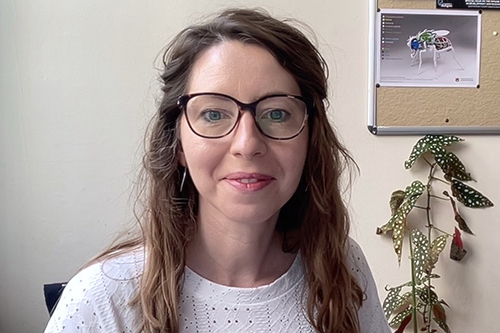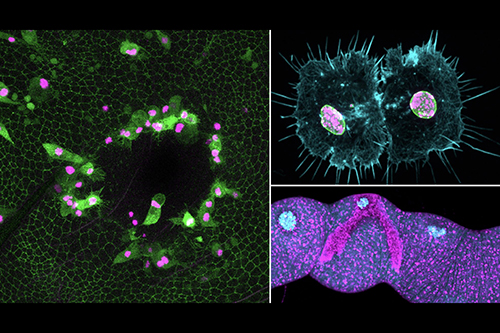Dr Weavers and her interdisciplinary team in the School of Biochemistry focuses on the molecular mechanisms enabling cells and tissues to resist and recover from insult, with the aim of developing novel therapies for regenerative medicine. Her group uses a wide range of cutting-edge approaches, integrating in vivo live imaging, molecular cell biology, genetics and ‘omics with computational modelling and genetic epidemiology.
Dr Weavers and her group have harnessed their models to uncover the fundamental molecular adaptations that enable diverse cell types to resist and repair damage. These cytoprotective mechanisms are important within barrier tissues, such as the skin or airways, vulnerable to environmental damage but also within internal tissues (e.g. kidneys), to defend against endogenous threat. Such self-defence strategies - which include redox control and metabolic reprogramming - limit cellular damage, ageing and death, so tissues can quickly restore function.
In collaboration with clinicians, Dr Weavers’ group now use their experimental models to probe how dysregulated repair drives disease and find ways to therapeutically boost cellular resilience.
Dr Weavers, commenting on her award, said: “I’m really touched to receive the BSCB WICB medal, especially as the BSCB Spring Meeting has been a highlight of my year since I was a postgraduate student. I’m thankful for all the support I’ve had from supervisors and colleagues over the years.”
Dr Weavers completed her PhD with Helen Skaer, in the Department of Zoology at the University of Cambridge, on the morphogenesis of the Drosophila renal system. During her later post-doctoral research with Professors Paul Martin and Will Wood at the University of Bristol, she began to work on the mechanisms underlying cellular responses to damage. Integrating live imaging with genetics and computational approaches, Dr Weavers uncovered multiple aspects of immune cell biology, including the generation of immune cell ‘memory’ and the signalling underlying immune cell recruitment to injury.
In 2018, Dr Weavers was awarded a Wellcome Trust and Royal Society Sir Henry Dale Fellowship to establish her independent research group. Alongside her Sir Henry Dale Fellowship, Dr Weavers holds a Lister Institute Research Prize and is Co-Director of Bristol’s Wellcome Trust PhD Programme in Dynamic Molecular Cell Biology.
Dr Weavers is actively involved in patient and public engagement (supported by her recent NC3Rs Public Engagement Award), conference organisation, mentoring and widening participation. Her group regularly contribute new resources for the research community, including protocols and bioinformatic tools.
You can read more about her work here www.tissueresilience.com
Dr Weavers will be awarded the WICB Medal and give a talk about her research during the Biologists @ 100 conference which is being held jointly between BSCB and The Company of Biologists on 24-27 March 2025 in Liverpool.

